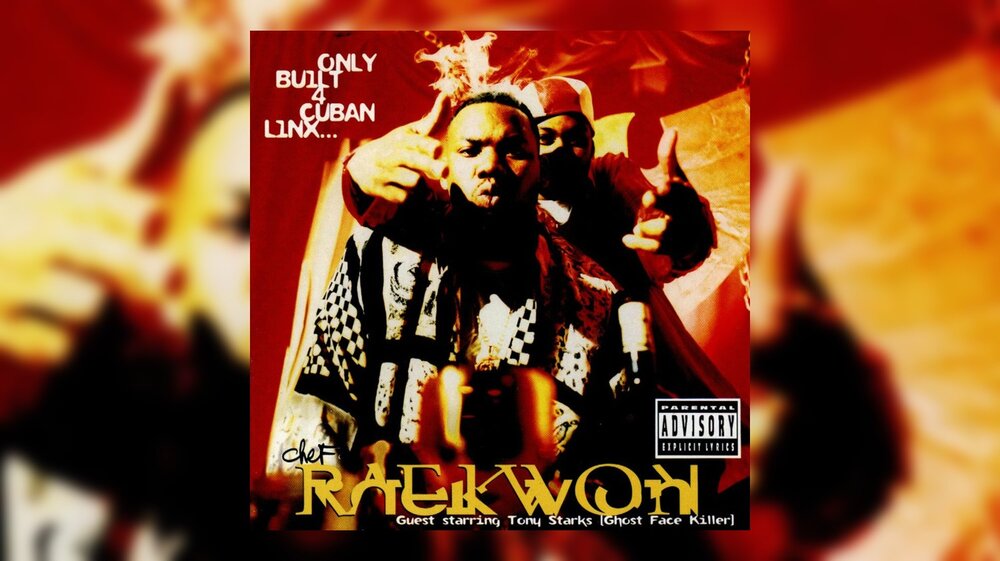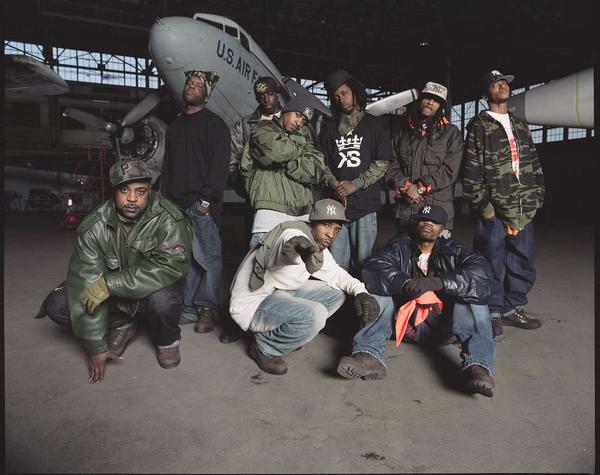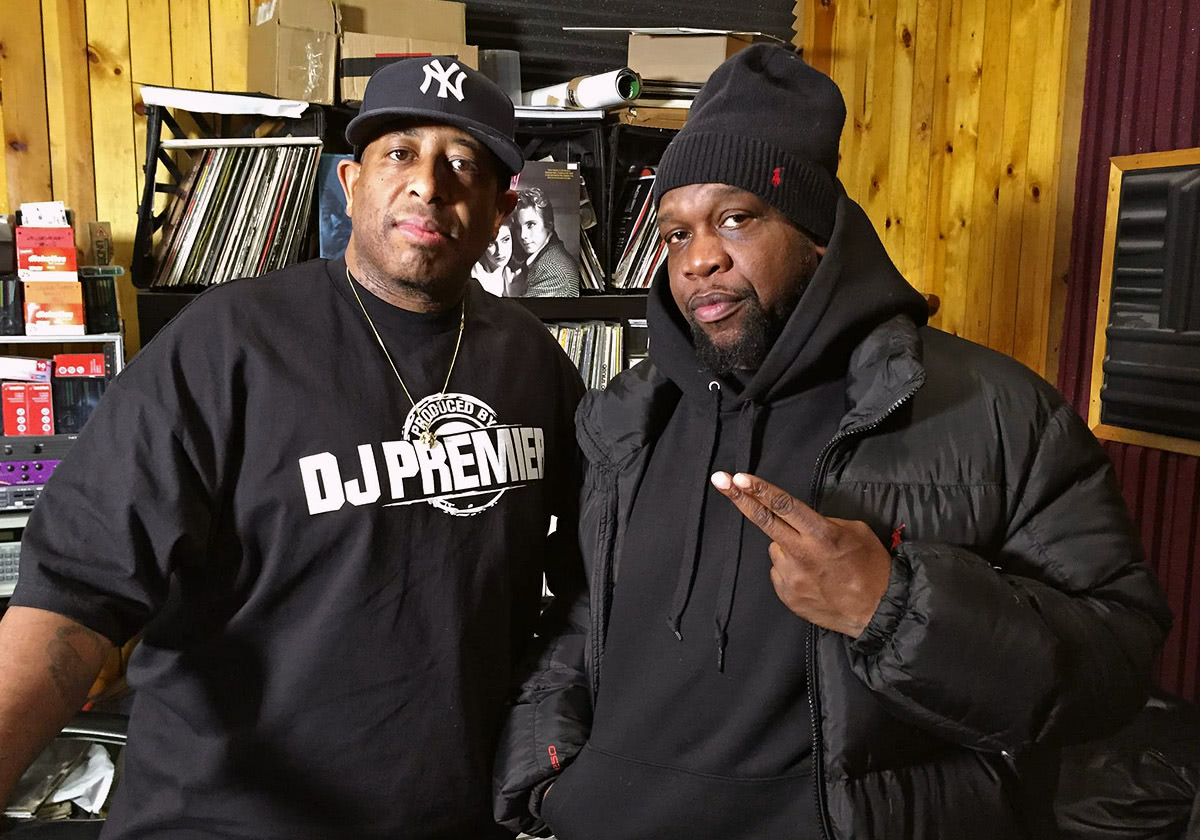Sacha Jenkins is of the culture and that was key in filming and capturing the essence of Wu-Tang Clan.
In what is being hailed as an epic achievement in music documentary, Wu-Tang Clan: Of Mics and Men is easily one of the most honest depictions of the inner workings of the nine-man crew that I have seen to date.
The four-part series, which premiered on Showtime two weeks ago, was conceptualized and directed by Sacha Jenkins, creative director at Mass Appeal and the director of Rapture with Nas and Dave East, Burn Motherf*cker Burn! and Word is Bond.
He is a skilled documentarian and cultural thinker of great repute. So when the opportunity came to interview the man who recorded, interviewed and directed the men of Wu-Tang Clan, I jumped at it.
https://www.youtube.com/watch?v=GHFxvsqMZMg&t=71s
The Shadow League: Wu-Tang Clan is a notoriously close-knit group that rarely opens up in the manner they did in this film. How did it all go down?
Sacha Jenkins: Myself and RZA share an agent at William Morris and I was told that RZA and Wu-Tang wanted to tell their story after 20 years. I had known RZA for nearly 20 years so I was a familiar face.
TSL: What did you say to him about your vision?
SJ: I told him any number of these production companies will do a great job but if I’m doing it you know it’s something that’s going to resonate because I’m of the culture and I understand who you guys are and there are a lot of important things in your story that can be communicated well beyond hip-hop.
That was my goal. So many people love hip-hop all over the world and so many people understand Wu-Tang but do they understand what the hell these people are talking about or where they’re coming from?
So I wanted to make a film to help people understand that Wu-Tang is a continuum of the blues and to understand the music you have to really unlock the environments in which they were born.
TSL: There have been so many people to interview, write about and film Wu-Tang Clan and its various parts over the years. Why do you think you were able to get them to open up in a manner none had been able to accomplish before?
SJ: They’re speaking to me, someone who looks like them and comes from a certain environment. So there’s a level of comfort they have that they had with me.
Regarding the manner in which they spoke in previous interviews, I think there were instances where the people who were interviewing them didn’t understand what they were saying so they may have changed it to try to do the translation for them, but that’s not my job. I’m not here to translate for people.
At the end of the day, I make films for the people I’m speaking about and speaking to. At the same time, my job is also to invite people to the party. I’m from the community, I’m of it, and I’ve gotta answer to these folks.
I have to represent the sentiment, the feeling, and the experience because so often that opportunity is given to other folks and they get it wrong. That doesn’t mean that they did not have the best intentions.
It’s just that I’m fluent in the language and because I understand the nuances I’m going to let certain things rock. I’m going to let people express themselves in a way that’s very natural to them.
https://www.youtube.com/watch?v=QfQjp1HmoB8&list=PLZ8c54cxQG2Fx4SuJQ8NyDDOagysV9cz-
TSL: And how is this film universal?
SJ: People are smarter than we want to give them credit for. Even if people don’t understand where the Wu-Tang Clan is coming from they still understand their intentions in the conversations that I have with them throughout the film. If you don’t understand every word that they’re saying, you understand their intentions.
And that’s what hip-hop has done. Hip-hop has reinvented the way we speak, the way we dress, the way we look at the world and I didn’t want to bastardize their perspective.
I think the environment they were interviewed in, I think they felt the weight of reflection and were at a place emotionally, with a certain level of maturity 25 years in, to talk.
TSL: The story is so epic it takes four parts to tell. Much of it is gritty, and the lens doesn’t lie.
SJ: I give them the credit for that. But there is no technique. I go in with things I want to ask but really I just have conversations with people and when you have conversations they forget that they’re being interviewed. We’re having a conversation right now and there’s an art to it. But I think they felt comfortable.
TSL: This is a raw documentary. Not graphically so, but hard-hitting and honest without judgment.
SJ: Oftentimes, black artists are looked at as exotic and when someone who is not of the culture is coming in… it’s like ‘Ohmigod! They’re selling crack! Ohmigod, they’re so tough!’ but the film starts out with these guys selling newspapers on the bridge or packing bags at a grocery store. Their story is an American story.
Like Raekwon said in the film, when you realize your neighborhood is worth a quarter of a million dollars a day it was interesting to them. That would be interesting to any kid in America.
But when you have no social capital you’re going to go from packing bags to selling crack. And I’m not judging them for that. I am of that, I came from that. I didn’t sell crack, but a lot of my friends did.
I’m making a film where I’m not being judgmental where “these people” are exotic. I’m looking at them in their natural habitat and letting them express themselves.
TSL: Much of the visual aesthetic is pieced together from old footage, but there are more than enough candid moments of reflection as well. Please tell me about a particular image that resonated with you from the film?
SJ: Our editor Paul. They say it takes a village, but I’d say it took a whole housing project to make this film. Our editors are amazing and Paul Greenhouse is a genius. He really understood my sentiment and my intentions and the things that were important to me in the film. There are like little quiet moments.
Like, Method Man is explaining what it’s like to grow up in the projects and the hope of at least one of them making it out. It cuts away to an exterior shot of this tree in front of the projects and it cuts away to images of garbage in the branches.
It’s those little things, for me as a filmmaker that has an opportunity to let Method Man talk about what it means to be from the projects with the goals and aspirations for the average person in the projects and you see it juxtaposed against nature and greenery, but there’s garbage in the tree. Little moments like that are interesting.
It’s another moment where U-God’s son gets shot and you don’t really know what’s happened to him. Then you see him being rehabilitated. Then you see him at a kids party and he’s playing and he’s walking.
Those moments in the movie like that. Again audiences are more intelligent than we like to give them credit for and I think with hip-hop sometimes people go for the lowest common denominator or they go for the most obvious.
Hip-hop is a lyrical form and it’s about reimagining your life through words. Things don’t have to always be so linear and so obvious. There are moments like that in the film that I think people will appreciate.
https://www.youtube.com/watch?v=GhMR7_up9JE
TSL: Talk about the bond of the collective we know as Wu-Tang Clan.
SJ: They’re called the Wu-Tang Clan for a reason, but to me, each member of Wu-Tang is equally interesting. You’re telling the same story from 9 or 10 different perspectives. But there a lot of commonalities amongst the stories.
It’s the same story. A lot of them didn’t grow up with their dads, they all went to schools where they felt like outsiders, they dealt with racism on the way to school, they dealt with schools that had absolutely no expectations for them.
I know first hand that every one of their stories is equally important. It’s the same story feeding the same monster, which is the Wu-Tang Clan.
I went to junior high with Nas. I was a couple of grades ahead of him but he had the same experiences that I had, which was guidance counselors told him that the only thing he could do was go to a vocational school.
They told me the same thing, on the one hand, I guess that was them trying to give us the opportunity to survive by having a skilled trade. There’s nothing wrong with fixing refrigerators. I wish there were more jobs for us to fix refrigerators, but they had no expectations for us beyond fixing refrigerators.
The second installment of Wu-Tang Clan: Of Mics and Men aired on Showtime Friday, May 17 at 9pm with the remaining two airing the next two Fridays.



